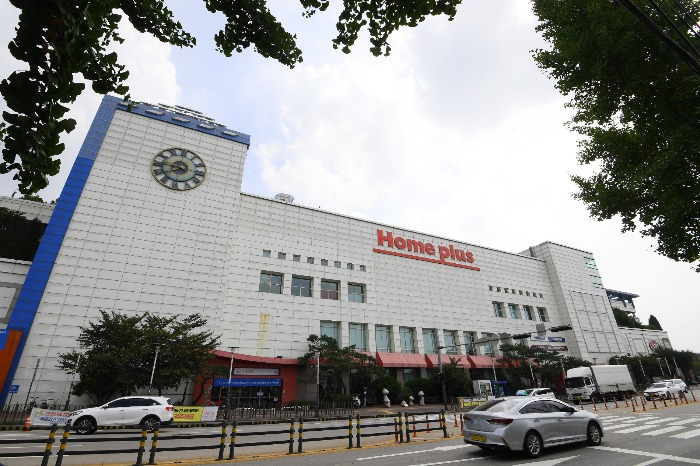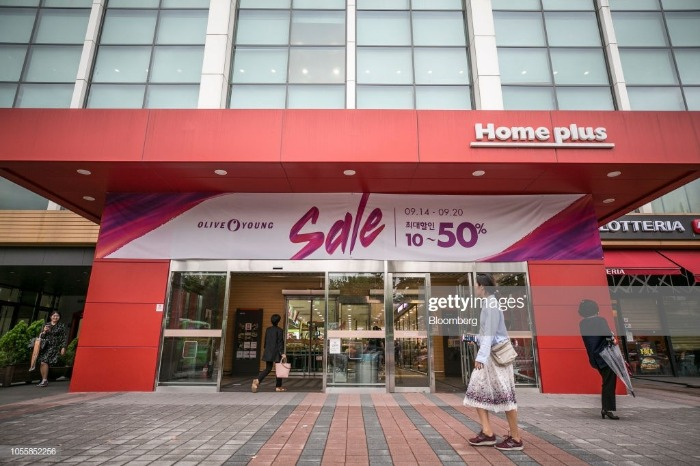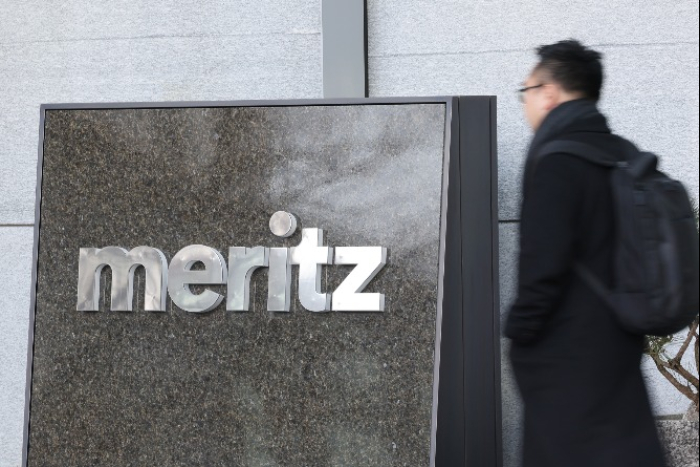MBK secures $1 bn refinancing on Homeplus from Meritz
The investment firm acquired Homeplus at 7.2 trillion won ($5.4 billion) in 2015 with 4.3 trillion won in debt financing
By Mar 22, 2024 (Gmt+09:00)
LG Chem to sell water filter business to Glenwood PE for $692 million


KT&G eyes overseas M&A after rejecting activist fund's offer


Kyobo Life poised to buy Japan’s SBI Group-owned savings bank


StockX in merger talks with Naver’s online reseller Kream


Meritz backs half of ex-manager’s $210 mn hedge fund



MBK Partners, the North Asia-focused private equity firm, has refinanced all of its 1.3 trillion won ($1 billion) loans on Homeplus with a new one from Meritz Financial Group Inc., a deal that alleviated concerns over liquidity problems at the South Korean supermarket chain.
Seoul-based Meritz Financial Group has agreed to extend fresh loans backed by Homplus store buildings and other properties, of which 800 billion won are falling due this year, according to sources with knowledge of the matter on Thursday.
With many other financial services firms reluctant to offer financing to the retail chain, Meritz was left as the only available lender and demanded strict terms, which MBK turned down in their first stages of talks.
It will lend the loans at around 10% per annum, based on the three-year yield on BBB-rated corporate loans plus 1 percentage point, according to the sources.
That is about double the average annualized rate of 5.2-5.3% on asset-backed corporate loans in Korea, quoted by the Korean Statistics Information Service under Statistics Korea.
In 2015, MBK acquired 100% of Homeplus for 7.2 trillion won from British retailer Tesco Plc in its biggest-ever acquisition, making it the then-largest ever buyout deal in Asia.
For the transaction, it raised 4.3 trillion won in acquisition financing and has since reduced the loan size by selling Homeplus store buildings.

However, Homeplus became a headache for MBK as it had yet to exit the loss-making company, and as e-commerce platforms continued to eat away at its market share.
In 2019, the supermarket chain operator borrowed a total of 500 billion won in senior and mezzanine loans against its properties and MBK’s stake in the company.
In 2021, it raised an additional 400 billion won in loans backed by rental deposits from tenants of Homeplus store buildings. The loans broke down into 300 billion won from Meritz Securities Co. and 100 billion won from Hanwha Investment & Securities Co.
Deteriorating profits and declining property values then took a heavy toll.
“Homplus remained in the red from 2021 to last year. It was not its business value but property assets that determined its corporate value,” said a domestic financial service company official in charge of acquisition financing.
“As the real estate market plunged, we decided not to take part because it was difficult to accept the conditions proposed by MBK Partners,” he told Market Insight, the capital market news outlet of The Korea Economic Daily.
Homeplus is facing the expiration of 300 billion won in loans in June borrowed from Mertiz Securities and 500 billion won in senior and mezzanine loans maturing in October.

ALTERNATIVE INVESTMENT
The deal is also expected to diversify Meritz's portfolio as Korean financial services companies are exploring alternative investments to project financing, the market of which has frozen with rising delinquency rates amid elevated interest rates and stalled construction projects.
Meritz has built a track record with risky loan investments shunned by its rival companies. Back in 2017, it extended 400 billion won in a step-up loan to Eland World Ltd., a retail company, at an annualized rate of 9%, on conditions that its rate could rise depending on market conditions.
The loans were collateralized by shares in Eland’s major subsidiaries.
In 2020, Meritz pocketed handsome returns from 900 billion in loans to Lotte Engineering & Construction Co. It lent the money at an annualized rate of 12%, including fees, at the height of the liquidity squeeze in the aftermath of a debt default by the local developer of a Legoland theme park in the country.
Write to Jun-Ho cha at chacha@hankyung.com
Yeonhee Kim edited this article.
-
 Investment bankingMBK’s Michael ByungJu Kim: Most influential in Korea’s capital market
Investment bankingMBK’s Michael ByungJu Kim: Most influential in Korea’s capital marketMar 11, 2024 (Gmt+09:00)
4 Min read -
 Private equityMBK Partners' key asset draws young customers: Modern House
Private equityMBK Partners' key asset draws young customers: Modern HouseFeb 15, 2024 (Gmt+09:00)
3 Min read -
 Private equityMBK names two partners as vice chairman, vice president
Private equityMBK names two partners as vice chairman, vice presidentJan 03, 2024 (Gmt+09:00)
1 Min read -

-
 BatteriesSK On wins $909 mn from BlackRock, QIA, MBK consortium
BatteriesSK On wins $909 mn from BlackRock, QIA, MBK consortiumMay 24, 2023 (Gmt+09:00)
1 Min read -
 Mergers & AcquisitionsMBK Partners to buy Belgian chocolate brand Pierre Marcolini
Mergers & AcquisitionsMBK Partners to buy Belgian chocolate brand Pierre MarcoliniApr 19, 2023 (Gmt+09:00)
1 Min read -

-
 Private equityTesco ordered to return $160 mn to MBK over Homeplus deal
Private equityTesco ordered to return $160 mn to MBK over Homeplus dealOct 14, 2021 (Gmt+09:00)
1 Min read


